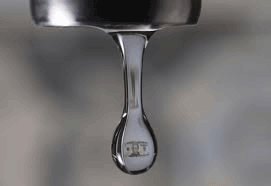Muskegon’s Water & Sewer Costs are Comparatively Low
October 17, 2010

If you live in Muskegon, your cost for water and sewer is lower than in most areas of the US.
Recently, the national engineering firm Black & Veatch published a study of water and sewer rates in the 50 largest US cities. The study provides an up-to-date nationwide perspective on how much citizens around the country pay for water and sewer service.
The study also helps puts into perspective how relatively inexpensive these services are in Muskegon. The cost for water in Muskegon is only slightly higher than the lowest cost city (Memphis, TN) in the Black & Veatch study. Muskegon’s sewer costs are comparatively higher, but still well below the mean and median costs for the surveyed cities.
The first table below shows Muskegon’s water and sewer costs for typical residential customers compared with the cities in the Black & Veatch study. The second table is taken directly from the Black & Veatch report and shows the specific cities included in the survey and how they compare for residences using 7500 gallons of water per month.

The Black & Veatch report also highlights several factors that are responsible for driving municipal water and sewer costs higher. Unfortunately, Muskegon is not immune to these pressures:
- Commodity Price Increases. Particularly in the areas of electricity, chemicals, natural gas, and fuel. Inflationary pressure on natural gas and fuel has abated somewhat in 2010 but remains volatile.
- Lower Consumption and High Fixed Cost. In general usage is declining while many utility costs such as debt service are fixed. Since most pricing structures include volume-based charges, revenues are declining while costs are not.
- Benefits. Pension obligations and health care benefits are prompting an increase in labor costs.
- Influence of Wastewater Consent Decrees. Significant capital programs are being implemented in most major cities to comply with consent decrees regarding the performance of wastewater systems.
- Aging Infrastructure. Rehabilitation and replacement of aging infrastructure remains a significant liability for most water and sewer utilities. Funding this liability will undoubtedly create additional inflationary pressure for the foreseeable future.
